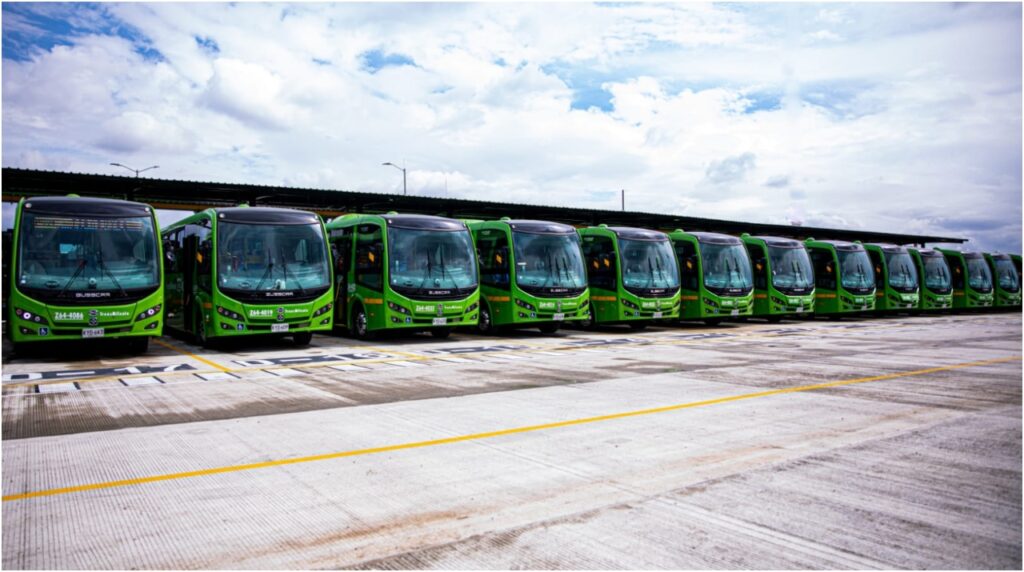
Decarbonizing Public Transport and Bus Fleets in LATAM: Key Topic in “Latam Mobility Colombia 2022”

By the end of 2022, Colombia is expected to have 1,589 electric buses in its mass transit fleets, positioning it as the second country in Latin America with the most such units, only surpassed by Chile.
Despite representing a great sustainable advance for the transportation sector, there are still many challenges to overcome on the road to total carbon neutrality by 2050.
In this order of ideas, the leading community in sustainable mobility in Latin America and the Caribbean, Latam Mobility, has organized the panel “Decarbonization of Public Transport and Bus Fleets in Latin America”, as a part of the meeting “Latam Mobility: Colombia”, to be held on June 8 and 9 at the Orquideorama in the Botanical Garden of Medellin.
Diego Correa, Mobility Management Director of Cuenca, Álvaro José Rengifo Campo, General Manager of Transmilenio, Tomás Elejal de Escobar, General Manager of Metro de Medellín and Camille Brax, Transport Project Manager of Transdev, will hold a debate to integrate the efforts of the public and private sectors in favor of sustainable mobility. All this, under the moderation of Jessica Ordoñez, Sustainability Director of Invest In Latam.
Transmilenio has been making news in this area, not only in terms of figures, but also in the integration of areas that were previously not covered, and now have electric units that provide benefits to the environment and users.
Transdev is shifting its sustainable bus fleet operations to the Americas, bringing its extensive presence in Canada to the debate. The company is known for being the first private operator of electric school buses in North America.
Ecuador has a sustainable mobility plan for the Cuenca canton with the objective of building a green model in the short, medium and long term to go along with the city’s growth.
Furthermore, the use of means of transportation such as the metro is part of the panorama of emissions reduction, implementing technological methods that meet the demands of today’s society, speeding up the time it takes for people to reach their destinations, avoiding the use of fossil fuels and reducing pollutants that are harmful to health.
All the aspects involved will come together to trigger a discussion that will allow us to take the appropriate actions that will enable a more sustainable mobility to be adopted in the short, medium and
long term.
For more information on the decarbonization of Public Transport and Bus Fleets in Latin America, follow the 2022 edition of Latam Mobility Colombia, scheduled for June 8 and 9, in Medellin.
For more information and participation options, go to www.latamobility.com





